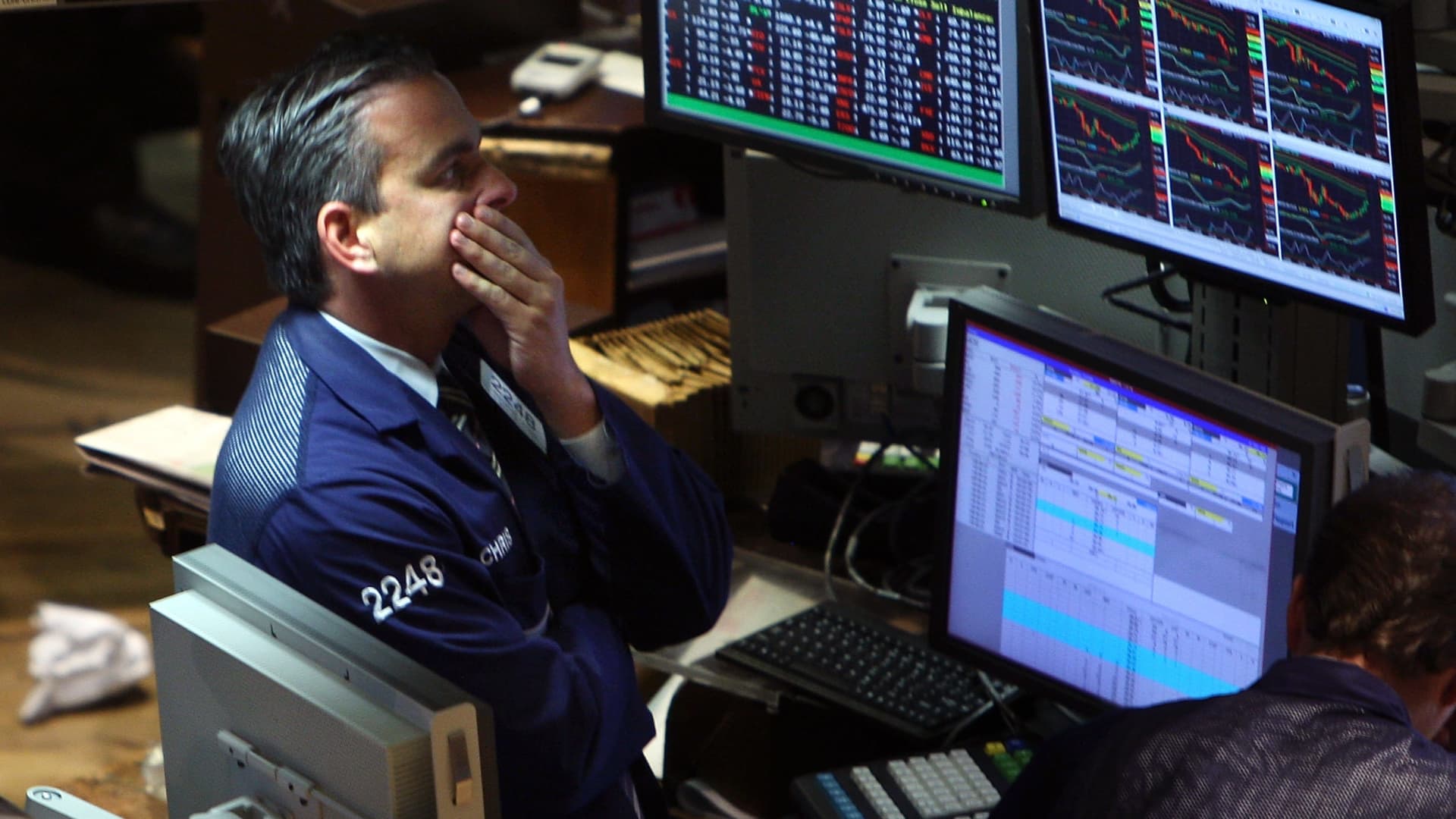Market fear signals are flashing red as stocks pull back from record highs

Several major gauges of fear in the market are reflecting increased alarm from investors. The Cboe Volatility Index , a measure of anticipated market instability that’s known as Wall Street’s “fear gauge,” topped 19 on Monday and closed at its highest level since October. It neared the key level of 20 in late fall of 2023 and at other times during the pandemic when traders were wary of an equity correction. @VX.1 1Y mountain The VIX over the past year At the same time, CNN’s Fear and Greed Index has tipped into “fear” territory this week. The market mood tracker sat in the “neutral” zone one week prior, but was comfortably in the “greed” range both a month and year prior. The index, which compiles seven different measures including put-and-call options and junk bond demand, has five labels ranging from “extreme greed” to “extreme fear.” When it tips below an average score of 50 like it has in recent days, it can be taken as a sign of investors growing nervous. And the so-called Panic Index from Goldman Sachs’ trading desk has climbed to levels not seen since early 2023. Before that, it last touched this point during 2022’s market sell-off. Taken together, these data points underscore mounting skittishness among market participants. This comes amid a breather following the market’s rally, while concerns rise around the potential for interest rates to remain higher for longer and for escalation in the conflict gripping the Middle East. The market has been thrown “this fear fly into the ointment,” said Alex McGrath, chief investment officer at NorthEnd Private Wealth, citing the situation in the Middle East on top of stretched market valuations and the path of interest rates. “You’ve got so much in the air right now.” Monetary policy has been top of mind for more than a year as investors have wondered when, or if, the Federal Reserve would begin lowering interest rates following a historic tightening campaign. Fed funds futures traders are pricing in the first rate cut coming in September, according to the CME FedWatch tool . That’s much later than market participants anticipated heading into the year. Those hoping for rate decreases sooner rather than later were dealt a tough blow when closely followed economic data was released last week. On an annualized basis, price indexes tied to both consumers and wholesalers showed inflation remained above the Fed’s preferred 2% clip, raising concerns that the cost of borrowing could stay elevated for longer than previously expected. That has contributed to a recent market drop, as the major indexes have pulled back in April from record highs notched earlier this year. Month to date, the S & P 500 is tracking for a decline of more than 3%, while the Nasdaq Composite is off by nearly 3%. The Dow is poised to slide almost 5% during the period. .DJI .SPX,.IXIC YTD mountain The three major indexes in 2024 This latest decline has placed the Dow just shy of its 2024 flatline, a stunning reversal after trading near the key 40,000 level just weeks prior. Treasury yields have also taken a leg up, with the rate on the 10-year note topping 4.6%. Rising oil prices have also weighed on the stock market, as commodity traders bought in on expectations of escalating conflict in the Middle East. Iran launched hundreds of drones and missiles at Israel on Saturday, though the attack was largely thwarted by the latter’s defense system. Now, traders are watching for Israel’s response. The current market downturn shouldn’t yet be taken as anything other than a typical — and healthy — correction, said Jason Heller, Coastal Wealth executive vice president. But he said the key threat to this outlook is if the conflict in the Middle East further spirals. “Very rarely do you get an escalator ride upward in the market — it tends to be an elevator ride,” Heller said. But, “I always write in pencil when I’m giving you prognostications, because things can change.” “This is just the natural ebb and flow, I think, of market pricing,” he added. “But, the caveat is, if things really go sideways in the Middle East, that could change the calculus.”







